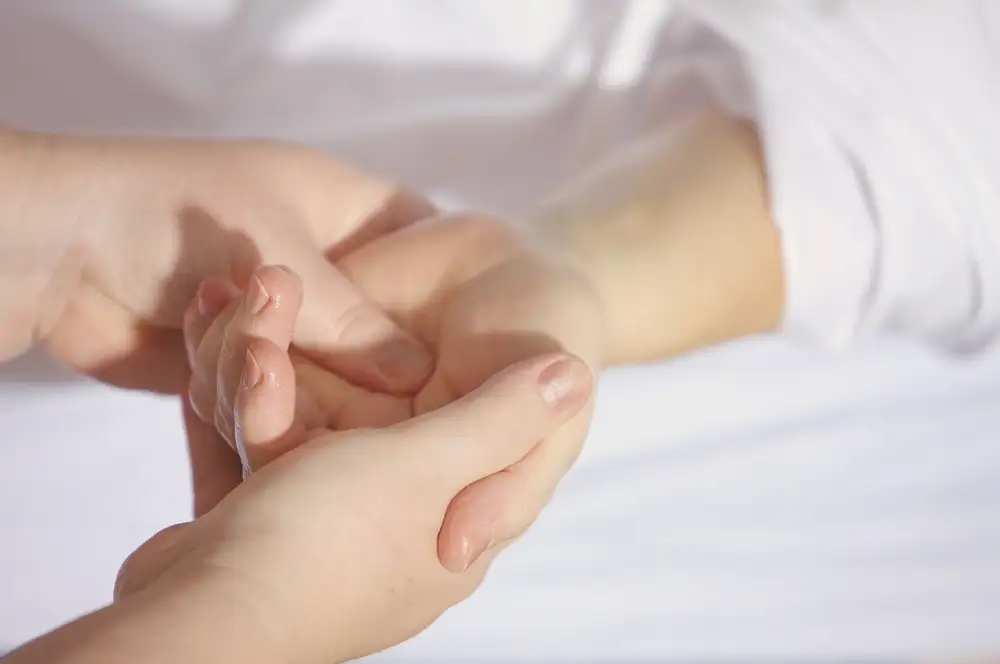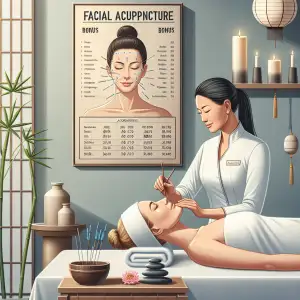When Massages Go Wrong: Cringeworthy Tales From the Table

- Unexpected Bruising
- Nerve Damage Incidents
- Massage Triggered Headaches
- Improper Technique Injuries
- Unsanitary Salon Conditions
- Allergic Reactions to Oils
- Post-Massage Soreness Issues
- Feeling Worse, Not Better
- The Importance of Feedback
- Choosing a Qualified Therapist
- Red Flags During Sessions
- Addressing Concerns Directly
- Seeking Medical Advice
- Knowing Your Rights as Client
Unexpected Bruising
Unexpected bruising after a massage can be alarming, but it's not always a cause for concern. Deep tissue or sports massages, which involve more intense pressure, are more likely to cause bruising. This is because these techniques can cause minor blood vessels to rupture beneath the skin's surface. If you're prone to bruising easily or have a bleeding disorder, it's essential to inform your massage therapist beforehand. They can adjust their pressure and techniques accordingly.
However, excessive or improperly applied pressure during a massage can lead to more severe bruising or even injury. There have been instances where individuals experienced nerve damage, muscle tears, or worsened existing conditions due to unqualified or negligent massage therapists. It's crucial to choose licensed and experienced practitioners who prioritize your safety and well-being.
If you experience any unusual or severe bruising after a massage, especially if accompanied by pain, numbness, or other concerning symptoms, seek medical attention promptly. While most massage-related bruising fades within a few days, it's always best to err on the side of caution and consult a healthcare professional if you have any doubts.
Nerve Damage Incidents
While massage therapy is generally considered safe and beneficial, there are instances where it can lead to negative outcomes, including nerve damage. This can occur due to various factors, such as excessive pressure, incorrect technique, or underlying health conditions.
One example is a condition called thoracic outlet syndrome, where nerves and blood vessels between the collarbone and first rib are compressed. Aggressive massage in this area can exacerbate symptoms like numbness, tingling, and pain in the arm and hand. Similarly, deep tissue massage in the neck region, if not performed correctly, can potentially injure the brachial plexus, a network of nerves that control movement and sensation in the shoulder, arm, and hand.
It's important to remember that individual responses to massage can vary greatly. What feels like firm pressure to one person might be painful to another. Always communicate openly with your massage therapist about your comfort level and any pre-existing conditions. If you experience any unusual pain or discomfort during or after a massage, stop the session immediately and consult a healthcare professional.
Massage Triggered Headaches
While massage is generally considered safe and beneficial for most people, there are instances where it can trigger headaches. This is often referred to as a "massage-triggered headache" or "post-massage headache." These headaches can range from mild and temporary to severe and debilitating.
One common type of massage-triggered headache is a cervicogenic headache, which originates in the neck. Aggressive massage techniques applied to the neck and shoulders can irritate muscles, nerves, and joints in this area, leading to pain that radiates to the head. Another type is a tension headache, which can be triggered by prolonged muscle tension or spasms. If a massage therapist applies excessive pressure or uses incorrect techniques, it can exacerbate existing muscle tension or create new trigger points, resulting in a headache.
People often share stories of massages that have had negative outcomes, including headaches. Some individuals report experiencing a dull, aching pain that starts during or shortly after the massage, while others describe a sharp, throbbing pain that can last for hours or even days. In some cases, people have reported experiencing migraines or headache attacks that are unusual for them after receiving a massage.
It's important to note that not everyone who experiences a headache after a massage has a massage-triggered headache. Sometimes, a headache may be coincidental and unrelated to the massage itself. However, if you consistently experience headaches after massages, it's essential to consult with a healthcare professional to rule out any underlying medical conditions and to discuss the possibility of massage-triggered headaches.
Improper Technique Injuries
Improper massage techniques can lead to injuries. It is important to seek out qualified and experienced massage therapists to minimize risks.
One common injury is a pinched nerve, often caused by deep tissue massage applied incorrectly. Symptoms can include numbness, tingling, and pain that radiates outward from the affected area. Another risk is muscle strain or tearing, which can happen if the therapist uses excessive force or improper stretching techniques. This can result in pain, stiffness, and reduced range of motion.
Some people experience headaches after a massage. This can be due to the therapist applying pressure to trigger points in the neck and shoulders. While these headaches are usually temporary, they can be debilitating for some. There are also reports of more serious complications, like blood clots, from aggressive massage, particularly in individuals with pre-existing conditions.
Always communicate openly with your massage therapist about your medical history, any areas of pain or discomfort, and your desired pressure level. If you experience any unusual pain or discomfort during or after a massage, stop the session immediately and consult a healthcare professional.
Unsanitary Salon Conditions
One of the worst things that can happen is ending up with an infection or other health problems because of unsanitary conditions. Think about it: massage therapists work with their hands directly on your body. If their equipment or the massage room itself isn't clean, it's a recipe for disaster.
We've heard horror stories! People getting staph infections from dirty massage tables, nasty rashes from unwashed towels, or even worse. It's enough to make your skin crawl! Always check out the place beforehand. Does it look clean and well-maintained? Are the linens fresh? If you see anything that makes you uncomfortable, trust your gut and walk away. Your health is worth it!

Allergic Reactions to Oils
Massage therapy is generally considered safe and beneficial for most people. However, some individuals may experience allergic reactions to certain massage oils. Allergic reactions can range from mild to severe and can occur immediately after contact with the oil or even hours later.
Some common symptoms of an allergic reaction to massage oil include redness, itching, hives, swelling, and difficulty breathing. In severe cases, anaphylaxis may occur, which is a life-threatening allergic reaction that can cause the throat to close up and the airways to constrict.
One story involved a woman who went for a massage and had a severe allergic reaction to the almond oil used. She developed hives all over her body and her throat began to swell. She was rushed to the hospital and treated with antihistamines and steroids.
Another story involved a man who had a delayed allergic reaction to the coconut oil used during his massage. He developed a rash on his back and chest a few hours after the massage. The rash was itchy and uncomfortable and took several days to clear up.
It's important to note that not all massage oils are created equal. Some oils, such as almond oil and coconut oil, are more likely to cause allergic reactions than others. If you have sensitive skin or a history of allergies, it's important to let your massage therapist know before your massage. You may also want to request a patch test to be done before the massage to check for any potential reactions.
Post-Massage Soreness Issues
While massage is generally considered safe and beneficial, there are instances where it can lead to post-massage soreness or other complications. This is often referred to as "massage gone wrong."
Some people experience mild soreness or tenderness in the muscles after a massage, which is a normal physiological response to the manipulation of soft tissues. This type of soreness usually subsides within a day or two and is nothing to be concerned about. However, if you experience severe or prolonged pain, it's essential to consult a healthcare professional to rule out any underlying issues.
Several factors can contribute to negative massage experiences. One common issue is deep tissue massage, which involves applying intense pressure to release chronic muscle tension. While effective for some, it can be too intense for others, leading to pain and discomfort. It's crucial to communicate your pain tolerance to your massage therapist and provide feedback during the session.
Another factor is the therapist's skill and experience. A poorly trained or inexperienced therapist may use incorrect techniques or apply excessive pressure, increasing the risk of injury. Choosing a licensed and reputable massage therapist is essential to minimize these risks.
Pre-existing medical conditions can also play a role. Certain conditions, such as osteoporosis, arthritis, or blood clotting disorders, can make massage unsafe or increase the likelihood of complications. It's crucial to inform your massage therapist about any pre-existing conditions to ensure they can tailor the massage accordingly or advise against it if necessary.
If you experience severe or persistent pain, numbness, tingling, or any other unusual symptoms after a massage, it's crucial to seek medical attention promptly. While rare, massage can potentially cause muscle strains, nerve compression, or other complications that require medical evaluation and treatment.
Feeling Worse, Not Better
Sometimes, a massage can leave you feeling worse instead of better. This can happen for a variety of reasons, from improper technique to underlying medical conditions. Some people experience soreness or stiffness after a massage, which is usually temporary and resolves within a day or two. However, more serious complications can occur, such as nerve damage, blood clots, or worsening of existing injuries.
It's important to remember that massage therapists are not medical doctors and cannot diagnose or treat medical conditions. If you have any underlying health concerns, it's crucial to consult with your doctor before getting a massage. Additionally, be sure to communicate any pain or discomfort you experience during the massage to your therapist. A skilled and ethical therapist will adjust their technique or stop the massage if necessary.
Remember, your well-being is paramount. If you're considering a massage, do your research, choose a qualified therapist, and listen to your body.
The Importance of Feedback
The massage therapist should always ask for feedback during and after the massage. This is especially important if the client has never had a massage before or if they have any injuries. Feedback can help the therapist adjust their pressure, techniques, or the areas of focus.
Sometimes, massages can go wrong. A massage therapist might use too much pressure, resulting in pain or even injury. Or, a client might have an allergic reaction to the massage oil or lotion. In some cases, a client might feel uncomfortable with the massage therapist's touch or demeanor.
These situations highlight the importance of clear and open communication. If at any point during a massage a client experiences discomfort, it's crucial to speak up. Don't be afraid to tell the therapist to use less pressure, to avoid a certain area, or to stop the massage altogether. Your well-being is paramount, and a good therapist will always prioritize your comfort and safety.
Sharing your experiences, both positive and negative, can help others make informed decisions about massage therapy. It can also encourage better communication between clients and therapists, leading to safer and more enjoyable experiences for everyone.
I walked in feeling like an over-tightened guitar string, and walked out feeling like I'd been hit by a semi.
Elara Nightshade
Choosing a Qualified Therapist
If a massage has left you feeling worse for wear, physically or emotionally, finding the right therapist is crucial. Look for licensed professionals with credentials from reputable organizations like the American Massage Therapy Association (AMTA) or the National Certification Board for Therapeutic Massage & Bodywork (NCBTMB). These organizations have standards of practice and codes of ethics that members must adhere to. Don't hesitate to ask about a therapist's experience, especially with any specific concerns you have. A qualified therapist will be happy to answer your questions and address any apprehensions you might have.
Reading online reviews can provide insights into other clients' experiences, but remember that individual responses to massage can vary. Trust your instincts. If something feels off about a therapist or their practice, it's perfectly okay to seek treatment elsewhere. Your well-being is paramount. Open communication is key throughout your massage journey. A qualified therapist will actively listen to your needs, adjust their techniques accordingly, and create a safe and comfortable environment for you.
Red Flags During Sessions
There are certain things that should never happen during a massage session. If at any point you feel uncomfortable or unsafe, you have the right to end the session immediately. Here are some red flags to watch out for:
| Feature | Typical Massage Experience | Massage Gone Wrong Experience |
|---|---|---|
| Outcome | Relaxation, pain relief, improved mobility | Pain, injury, discomfort, emotional distress |
| Therapist Communication | Clear, professional, attentive to client needs | Poor communication, dismissive of concerns, unprofessional conduct |
| Hygiene Standards | Clean and sanitary environment, fresh linens | Unhygienic conditions, unclean linens, improper hand hygiene |
Inappropriate touching. A massage therapist should never touch your genitals or breasts. If this happens, it is considered sexual assault, and you should report it to the authorities immediately.
Unwanted sexual advances. A massage therapist should never make sexual comments or advances towards you. If this happens, it is considered sexual harassment, and you should report it to the authorities.
Painful or aggressive massage. A massage should never be painful. If a therapist is using too much pressure, you should speak up. If they continue to use excessive pressure after you've asked them to stop, end the session immediately.
Unsanitary conditions. The massage room should be clean and hygienic. If you notice anything unsanitary, such as dirty linens or used massage tools, you should bring it to the attention of the therapist or staff.

Unprofessional behavior. A massage therapist should always conduct themselves professionally. This includes being on time for appointments, dressing appropriately, and maintaining a professional demeanor.
If you experience any of these red flags, it's important to trust your gut and remove yourself from the situation. You can report the incident to the massage therapy establishment, licensing board, or local authorities. Your safety and well-being are paramount.
Addressing Concerns Directly
It's important to remember that every massage experience is subjective, and what feels great for one person might not work for another. Open communication is key to addressing any concerns before, during, and after a massage. If something doesn't feel right, don't hesitate to speak up. A professional massage therapist will want to know so they can adjust their technique or address any discomfort you're experiencing.
If you've had a negative experience, consider discussing it directly with the therapist or spa manager. They might not be aware of the issue and appreciate the opportunity to make things right. Remember, sharing your experience, whether positive or negative, can help improve the massage experience for everyone.
Seeking Medical Advice
If you're experiencing persistent pain or discomfort after a massage, it's crucial to seek medical advice. Don't dismiss the pain as just soreness from a deep tissue massage. While some tenderness is normal for a day or two, severe or worsening pain could indicate an injury. See your doctor or a qualified healthcare professional. They can assess your symptoms, determine the cause of your discomfort, and recommend appropriate treatment. Remember, sharing your recent massage experience with your doctor is essential. This information helps them understand the potential causes of your pain and provide the most effective care.
Knowing Your Rights as Client
It's crucial to remember that a massage is a healthcare service, and you have rights as a client. If a massage goes wrong, it can be a distressing experience, ranging from mild discomfort to serious injury. Many individuals have shared stories of massages gone wrong, highlighting the importance of understanding your rights. These stories often involve inappropriate pressure leading to pain, injuries like nerve damage or torn ligaments, or even instances of boundary violations.
Remember, you have the right to:
- Clear communication: You should feel comfortable discussing your needs, preferences, and any existing medical conditions with your therapist. This includes specifying areas you want to avoid or the desired pressure level.
- A safe and comfortable environment: The massage environment should be clean, appropriately heated, and ensure your privacy. You should feel safe and respected throughout the session.
- To end the massage: You have the absolute right to end the massage at any point if you experience discomfort, pain, or feel uncomfortable for any reason.
- Report any concerns: If you feel your massage therapist acted unprofessionally, used excessive pressure, or caused an injury, you have the right to report it to the spa or massage practice management and the relevant licensing board if applicable.
Knowing your rights empowers you to advocate for yourself and ensure a safe and beneficial massage experience. Don't hesitate to speak up if something doesn't feel right. Your well-being is paramount.

Published: 06. 07. 2024
Category: Food



